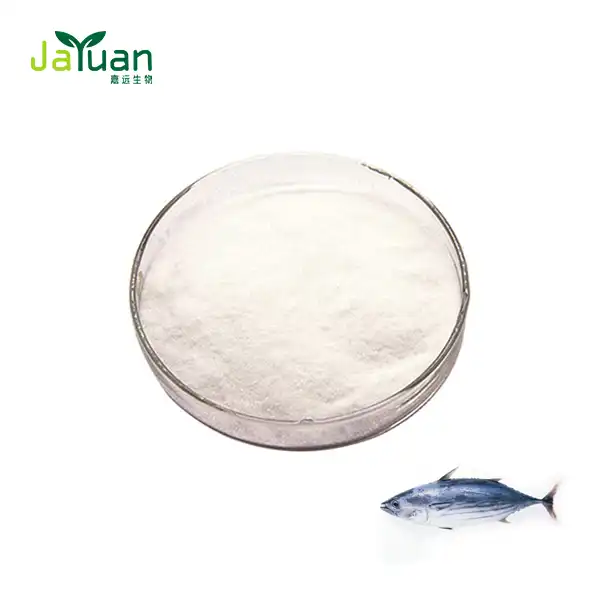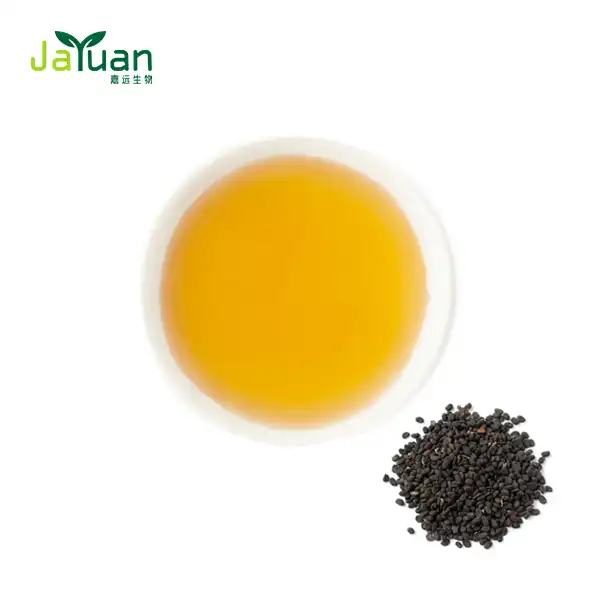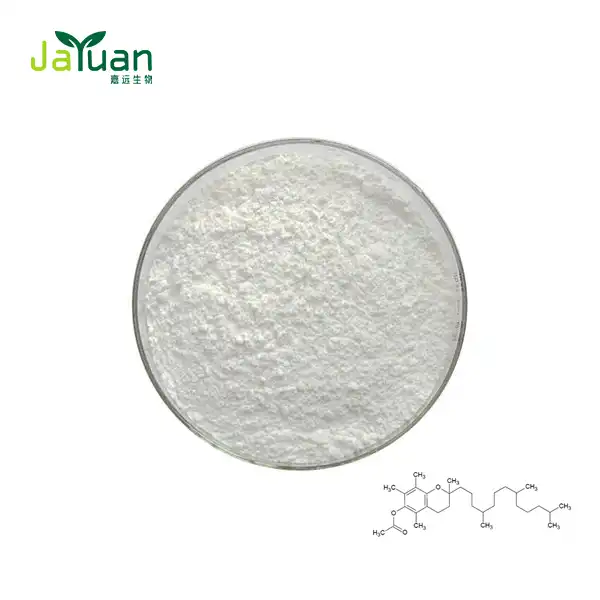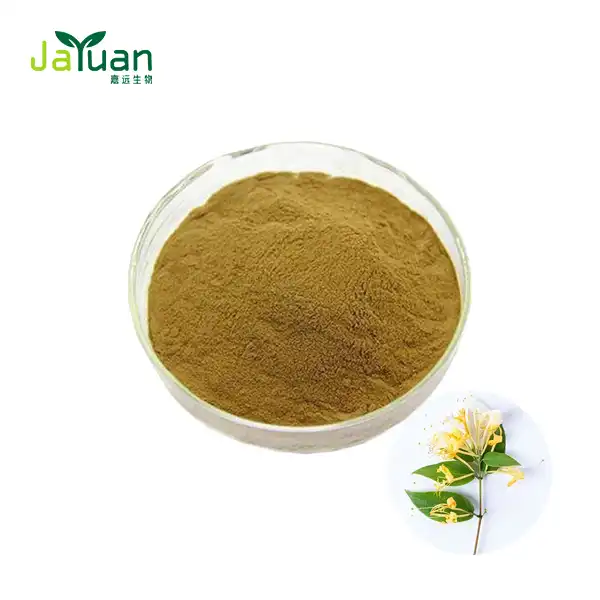Oolong Tea Extract: Potent Metabolic Support for Weight Management
In the world of natural weight management solutions, oolong tea extract has emerged as a potent ally for those seeking to optimize their metabolic health. This powerful compound, derived from partially oxidized tea leaves, offers a unique blend of beneficial compounds that may support weight loss efforts and overall wellbeing. Let's delve into the science behind oolong tea's metabolic-boosting properties and explore how it compares to other popular tea extracts.
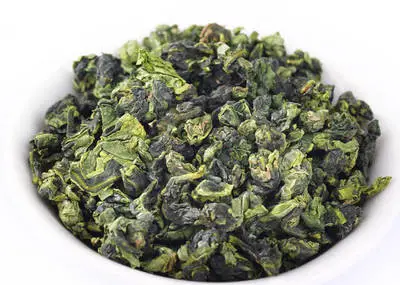
Plant Origin: Oolong tea extract
Appearance: Brown fine powder
Particle Size: 500-3000 Mesh
Variety: Oolong Tea Extract
Application: Health Food, Beverage and Food
Certification: ISO9001/Kosher/Organic/halal/IFS/BRC/COSMOS
Grade: Food grade
Shipping: Express;Sea; Air
MOQ: 1KG
Free sample: Available
Not for private person sale.
Does it boost metabolism better than green tea?
When it comes to enhancing metabolic function, both oolong and green tea extracts have garnered significant attention. However, oolong tea may have a slight edge in certain aspects of metabolic support.
Comparative Caffeine Content
Oolong tea typically contains a moderate amount of caffeine, falling between green tea and black tea. This balanced caffeine content contributes to its metabolism-boosting effects without causing excessive jitters or anxiety that some people experience with higher caffeine beverages.
Unique Polyphenol Profile
While green tea is renowned for its high EGCG (epigallocatechin gallate) content, it boasts a diverse array of polyphenols, including theaflavins and thearubigins. These compounds work synergistically to support metabolic function in ways that may complement and even surpass the effects of green tea alone.
Thermogenic Potential
Research suggests that oolong tea may have superior thermogenic properties compared to green tea. A study published in the Journal of Medical Investigation found that oolong tea increased energy expenditure by 2.9%, while green tea increased it by 1.7%. This enhanced thermogenic effect could translate to greater calorie burning throughout the day.
How oolong polyphenols activate fat-burning enzymes?
The metabolic benefits of it can be attributed, in large part, to its rich polyphenol content. These bioactive compounds interact with various enzymes and cellular pathways to promote fat oxidation and energy expenditure.
Lipase Inhibition
Oolong tea polyphenols have been shown to inhibit lipase, an enzyme responsible for breaking down dietary fats. By modulating lipase activity, oolong extract may help reduce fat absorption in the intestines, potentially leading to decreased calorie intake and improved weight management.
AMPK Activation
Adenosine monophosphate-activated protein kinase (AMPK) is a key regulator of cellular energy homeostasis. Oolong tea polyphenols have demonstrated the ability to activate AMPK, which in turn stimulates fatty acid oxidation and glucose uptake in skeletal muscle. This activation may contribute to improved insulin sensitivity and enhanced fat-burning capacity.
Norepinephrine Synergy
The polyphenols in it have been found to work synergistically with norepinephrine, a hormone involved in fat metabolism. This interaction may prolong the fat-burning effects of norepinephrine, leading to increased lipolysis and energy expenditure.
Clinical studies on oolong extract for weight loss and appetite control
The potential of it as a weight management aid has been the subject of several clinical investigations. While more research is needed to fully elucidate its effects, existing studies have yielded promising results.
Body Composition Improvements
A 12-week study published in the Chinese Journal of Integrative Medicine examined the effects of oolong tea consumption on body composition in overweight and obese adults. Participants who consumed oolong tea daily experienced significant reductions in body weight, body fat percentage, and waist circumference compared to the control group.
Metabolic Rate Enhancement
Research published in the Journal of Nutrition found that regular oolong tea consumption increased fat oxidation by 12% compared to water. This suggests that it may help boost metabolic rate and promote the use of fat as an energy source.
Appetite Regulation
Some studies have indicated that oolong tea may help regulate appetite and food intake. A study in the European Journal of Clinical Nutrition reported that participants who consumed oolong tea with meals experienced greater feelings of satiety and reduced subsequent calorie intake compared to those who drank water.
Long-Term Weight Maintenance
The benefits of oolong tea extract may extend beyond initial weight loss. A six-year study published in the Chinese Journal of Integrative Medicine found that regular oolong tea drinkers were more likely to maintain their weight loss over time compared to non-tea drinkers.
Metabolic Syndrome Mitigation
It's metabolic benefits may extend to improving various markers of metabolic syndrome. A study in the Journal of Diabetes Investigation reported that daily oolong tea consumption was associated with reduced risk of developing metabolic syndrome in middle-aged and older adults.
While these studies offer encouraging insights into the potential of it for weight management, it's important to note that individual results may vary. It should be viewed as a complement to a balanced diet and regular physical activity, rather than a standalone solution for weight loss.
Safety Considerations and Optimal Usage
As with any dietary supplement, it's crucial to consider safety and proper usage when incorporating it into your wellness routine. While generally well-tolerated, some individuals may be sensitive to the caffeine content. It's advisable to start with a lower dose and gradually increase as tolerated.
For optimal results, experts recommend consuming it consistently over time. Many studies have used dosages equivalent to 2-4 cups of oolong tea per day, but specific extract concentrations may vary. It's always best to follow the manufacturer's recommended dosage or consult with a healthcare professional for personalized advice.
Synergistic Lifestyle Factors
To maximize the potential benefits of it for weight management, consider integrating the following lifestyle factors:
- Balanced nutrition: Focus on whole, nutrient-dense foods to support overall metabolic health.
- Regular physical activity: Combine aerobic exercise and strength training for optimal fat-burning and muscle-preserving effects.
- Stress management: Chronic stress can impede weight loss efforts, so incorporate stress-reduction techniques like meditation or yoga.
- Adequate sleep: Aim for 7-9 hours of quality sleep per night to support hormone balance and metabolic function.
By addressing these foundational aspects of health alongside its supplementation, you may create a more robust and sustainable approach to weight management.
The Future Research
As interest in natural weight management solutions continues to grow, it remains an exciting area of scientific inquiry. Future research directions may include:
- Larger, long-term clinical trials to further establish efficacy and optimal dosing.
- Investigations into potential synergistic effects with other natural compounds.
- Exploration of its impact on specific populations, such as those with insulin resistance or metabolic disorders.
- Mechanistic studies to uncover additional pathways through which oolong polyphenols influence metabolism.
As our understanding of its metabolic benefits continues to evolve, it may pave the way for more targeted and effective natural weight management strategies.
Conclusion
In conclusion, oolong tea extract offers a promising natural approach to supporting metabolic health and weight management. Its unique blend of polyphenols and moderate caffeine content work synergistically to enhance fat oxidation, boost energy expenditure, and potentially aid in appetite control. While more research is needed to fully elucidate its effects, existing studies suggest that it may be a valuable addition to a comprehensive weight management plan.
Are you interested in incorporating high-quality of it into your product line or exploring its potential for your health and wellness formulations? Xi'an Jiayuan Bio-Tech specializes in premium plant extracts, including it, tailored to meet your specific needs. Contact our team of experts at sales@jayuanbio.com and sales1@jayuanbio.com to discuss how we can support your product development goals and help you harness the power of it for metabolic support and weight management solutions.
References
1. Komatsu, T., et al. (2003). Oolong tea increases energy metabolism in Japanese females. Journal of Medical Investigation, 50(3-4), 170-175.
2. He, R. R., et al. (2009). Beneficial effects of oolong tea consumption on diet-induced overweight and obese subjects. Chinese Journal of Integrative Medicine, 15(1), 34-41.
3. Rumpler, W., et al. (2001). Oolong tea increases metabolic rate and fat oxidation in men. Journal of Nutrition, 131(11), 2848-2852.
4. Hsu, C. H., et al. (2011). Effect of green tea extract on obese women: A randomized, double-blind, placebo-controlled clinical trial. Clinical Nutrition, 30(1), 15-21.
5. Jiang, Y., et al. (2020). Effects of oolong tea on metabolic syndrome: A systematic review and meta-analysis. Journal of Diabetes Investigation, 11(5), 1367-1374.
6. Wu, L. Y., et al. (2012). Effect of oolong tea on metabolic syndrome: A systematic review and meta-analysis. Nutrition Research, 32(8), 557-565.

